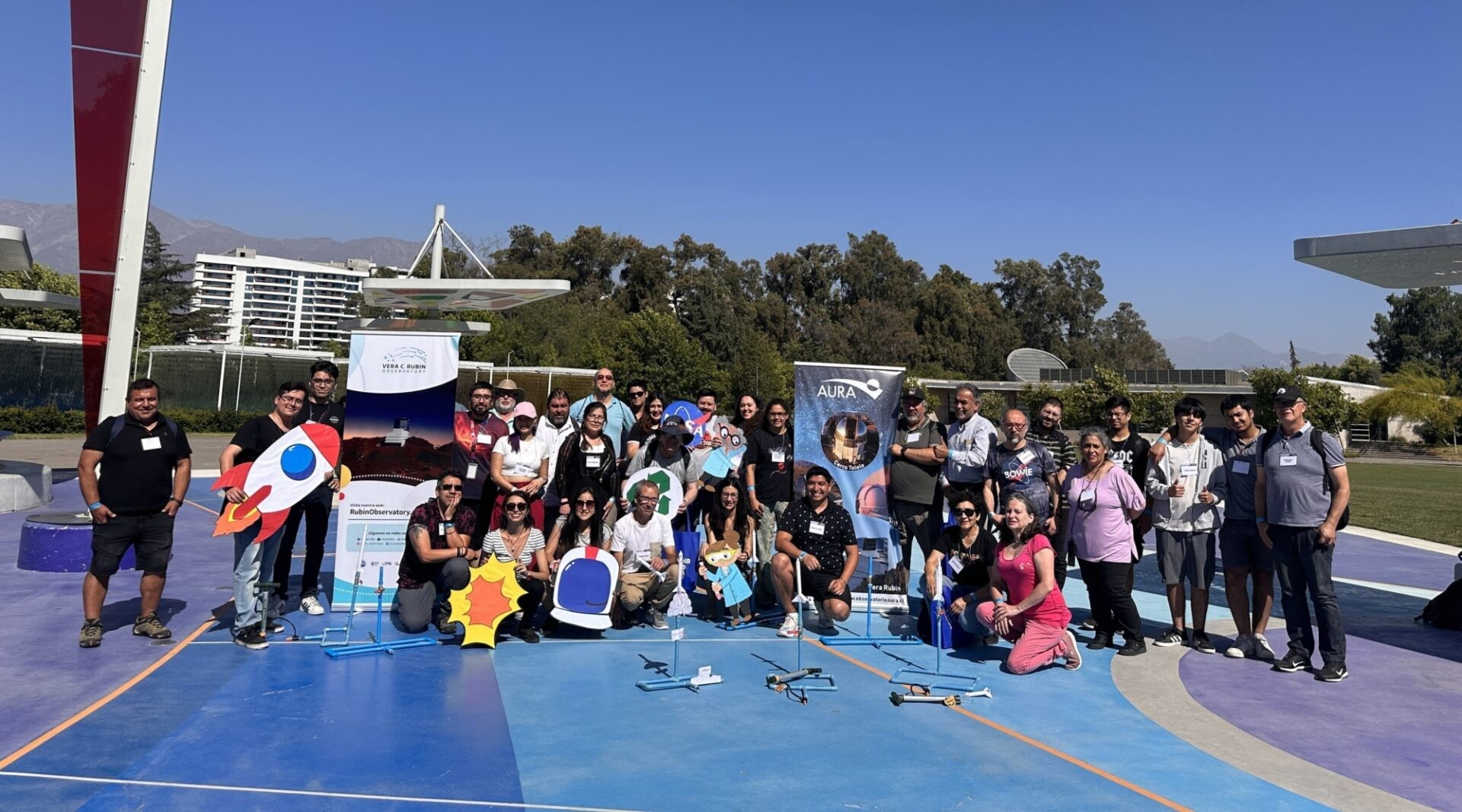Rubin Hosts Teacher Workshops in Chile
In early January, members of the Vera C. Rubin Observatory education team conducted a three-day training workshop for a group of 30 teachers from different parts of Chile. The workshop was organized in collaboration with the Museo Interactivo de la Astronomía (Interactive Museum of Astronomy) and the Universidad Andrés Bello (UNAB). The purpose of the training was to give teachers the tools—and the confidence—to effectively integrate astronomy into their classrooms with Rubin’s interactive, easy-to-use educational investigations. These investigations cover topics commonly taught in introductory astronomy courses, and they incorporate real astronomy data. They only require an internet connection and a browser to access them, and they’re completely free for teachers to use.
Throughout the three days, teachers engaged in a variety of educational activities. Some focused on the specific themes of Rubin’s investigations, from exploring the Expanding Universe to understanding how astronomers create vivid images with Coloring the Universe. Teachers also participated in hands-on workshops to learn more about timely topics like how rockets are launched, the impacts of climate change on our planet, and the negative effects that light pollution has on both astronomy and our day-to-day lives.
Rubin team members who ran the workshop were excited to share resources and tips with the teachers group, and the teachers were enthusiastic about these practical tools that will inspire their students to explore the mysteries of the Universe. Learn more about all the resources and support Rubin offers teachers on our Education page.

